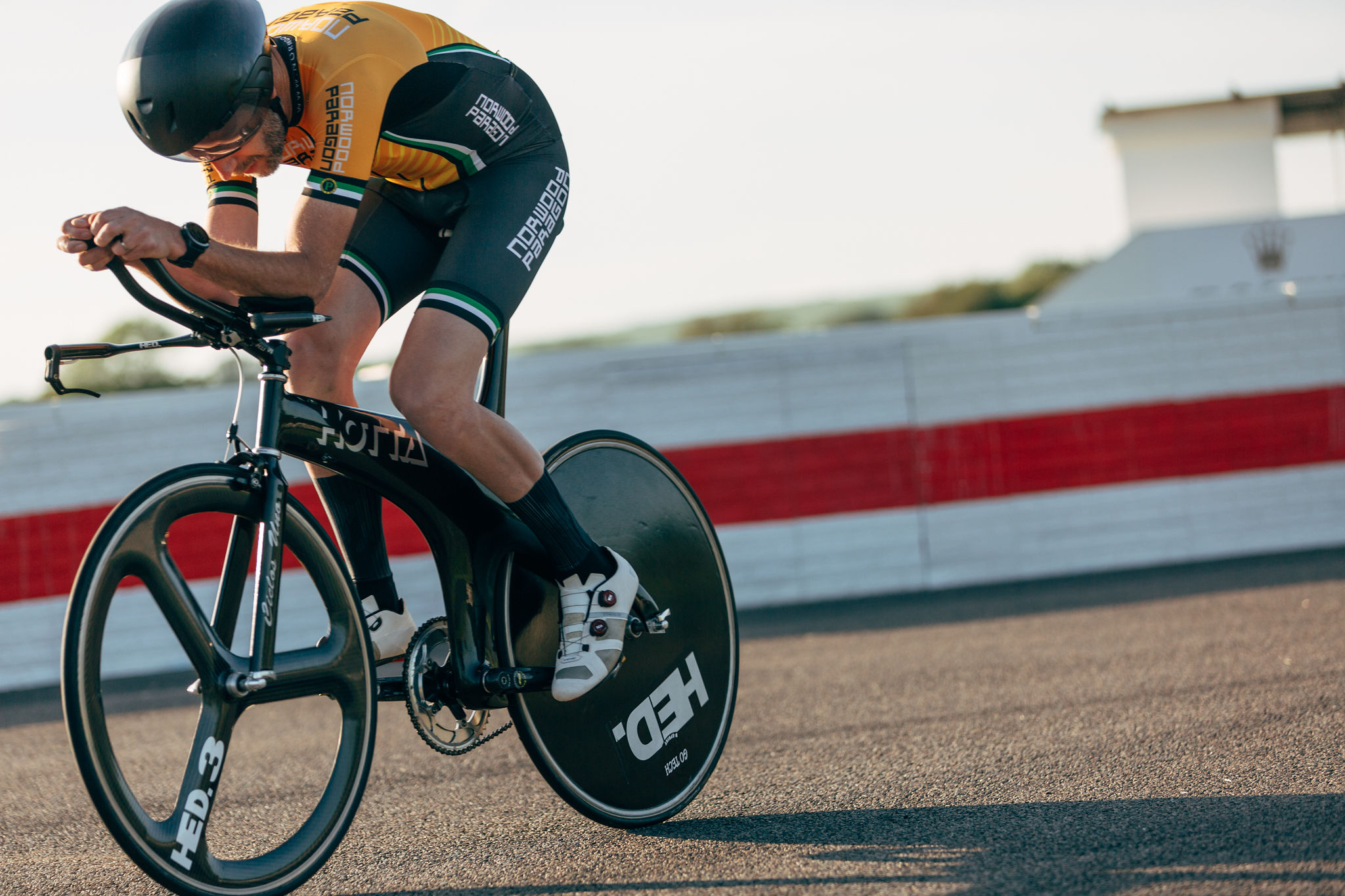Is Decathlon's Magic Bike the future of cycle commuting?
New concept e-bike deploys innovative tech to make it easier to use... 'to help current and future commuters in their daily lives'
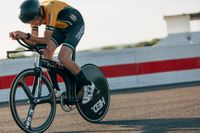
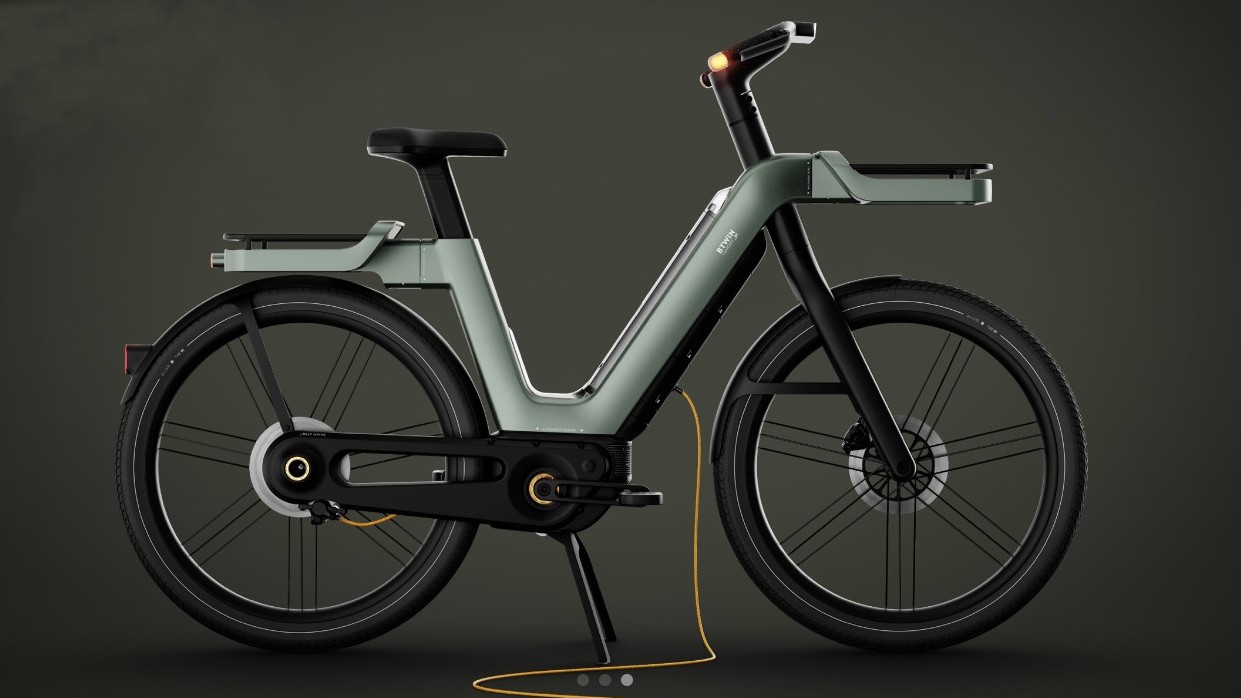
The latest race content, interviews, features, reviews and expert buying guides, direct to your inbox!
You are now subscribed
Your newsletter sign-up was successful
Decathlon has unveiled its vision of the future - and it's far from the sensible, practical and low-priced product we’re more accustomed to seeing from the French sports superstore chain.
The ‘Magic Bike’ is a concept e-bike and as far we know only exists in the virtual world of its own Magic Bike website. However, Decathlon says that its first concept bike “embodies our first ideas to help current and future commuters in their daily commute.” With the Magic Bike, or B'Twin Concept _01 to give it its working title, it aims to “test different technologies and ideas, submit them to you to challenge them, collect your opinions whether or not you practice cycling in your daily life or in your leisure time.”
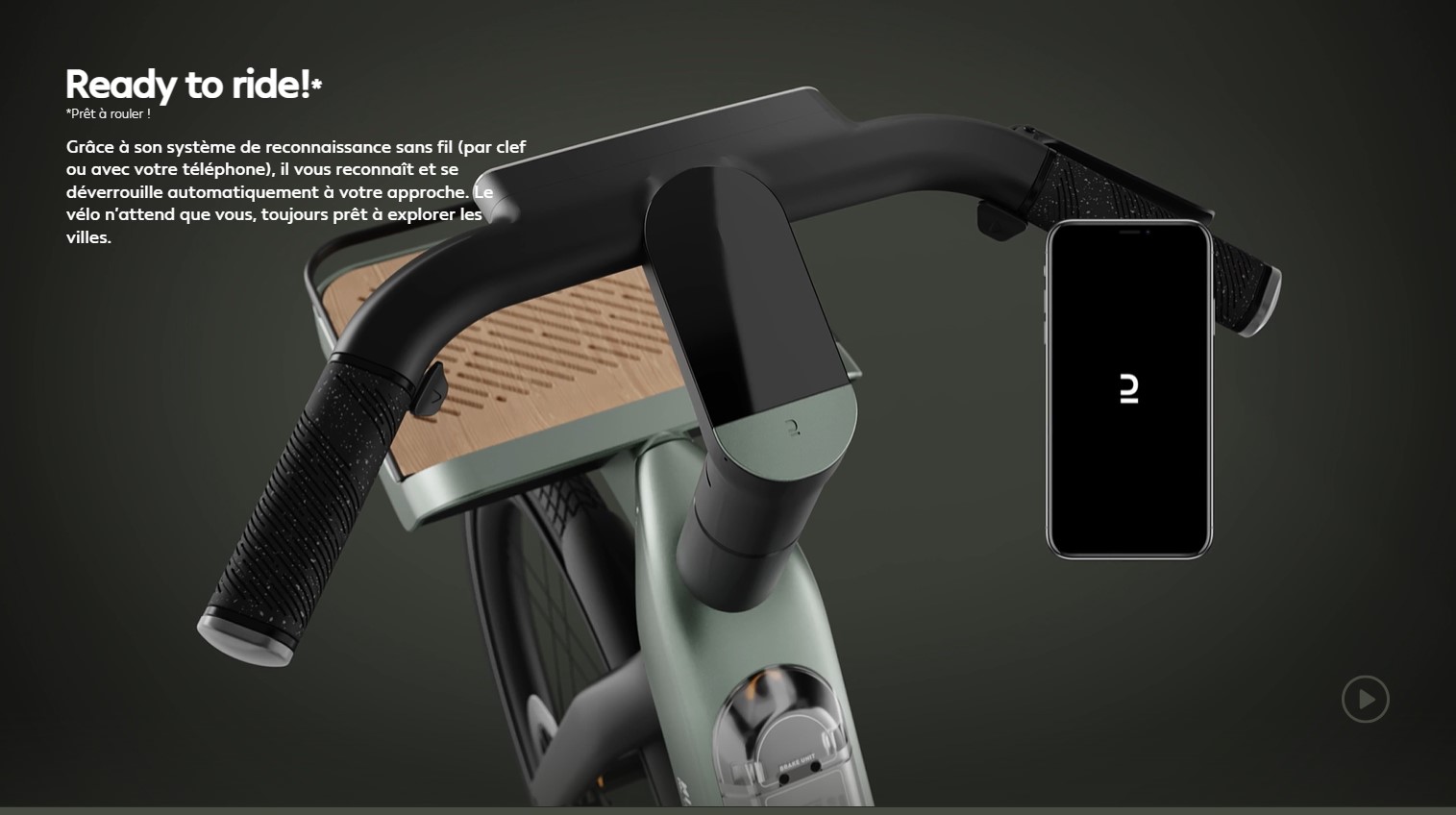
The words “whether or not you practice cycling” are key to the concept: Decathlon’s mission is to put as many people as possible on bikes or scooters. It quotes a study that shows that in France 60% of home-to-work journeys of less than 5km are made by car, representing 25% of CO2 emissions.
With the Magic Bike Decathlon focused on three key areas: the bike’s ease of use; the safety of the cyclist and their bike; its ability to adapt to your everyday life.
So unsurprisingly - and so as not to lose its non-cycling audience - the Magic Bike website zooms in on the technology rather than frame, components and spec. We have no idea what material the step-through unisex frame is made of, for example.
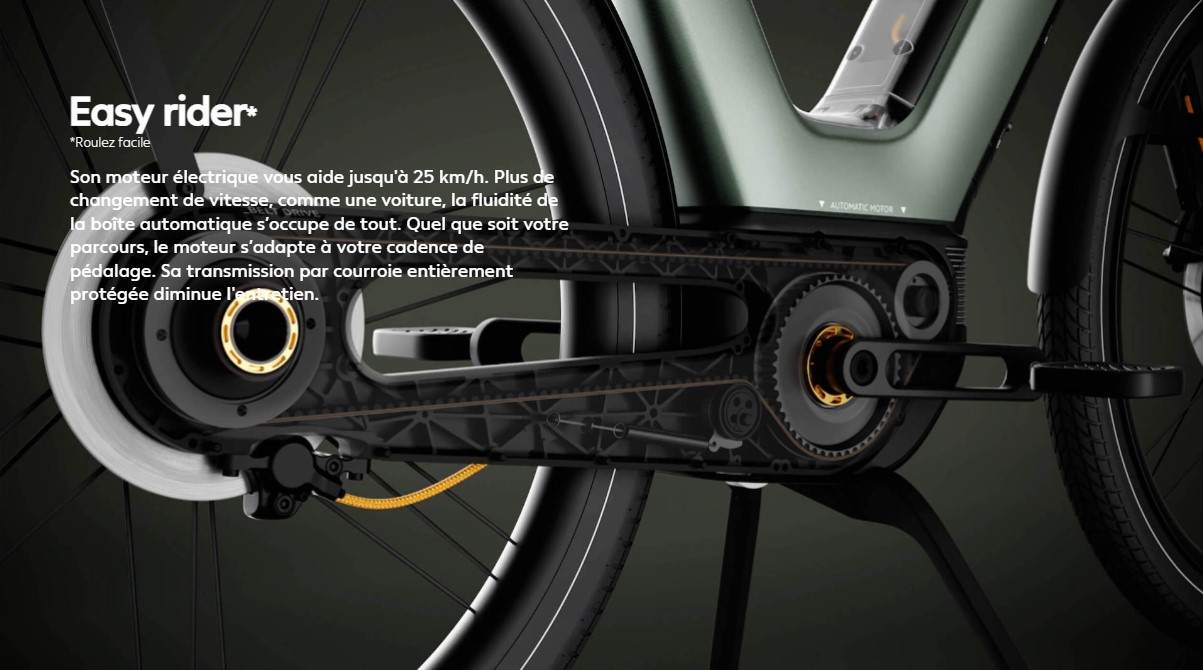
There are some basic details about the electric motor and drivetrain: “Its electric motor helps you up to 25 km/h. No more shifting, like a car, the fluidity of the automatic transmission takes care of everything. Whatever your route, the motor adapts to your cadence. Its fully protected belt transmission reduces maintenance.”
The brakes are operated by a single lever on the right hand side of the bar: 60% of braking force takes place at the front while the other 40% is at the rear.
The latest race content, interviews, features, reviews and expert buying guides, direct to your inbox!
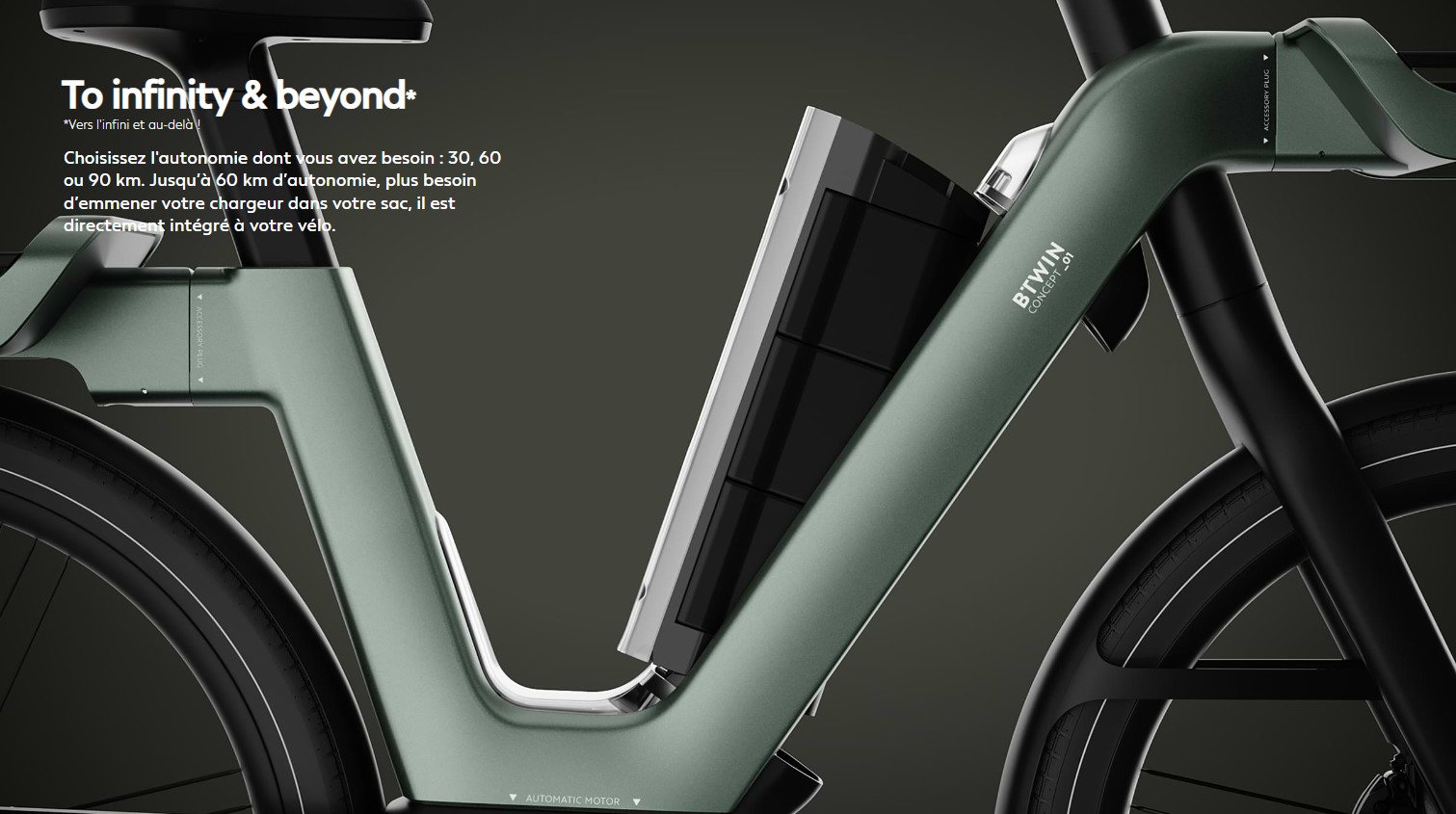
The battery - or batteries - are integrated into the down tube. The video on the website shows three module-like battery packs accompanied by the explanation: “Choose the range you need - 30 60 or 90km.” Additionally the charger is stored in the down tube so that there’s no need to carry it in a bag.
As for the tech, the Magic Bike has a wireless recognition system that operates via a key or a smartphone. Decathlon says the bike unlocks automatically when you approach.
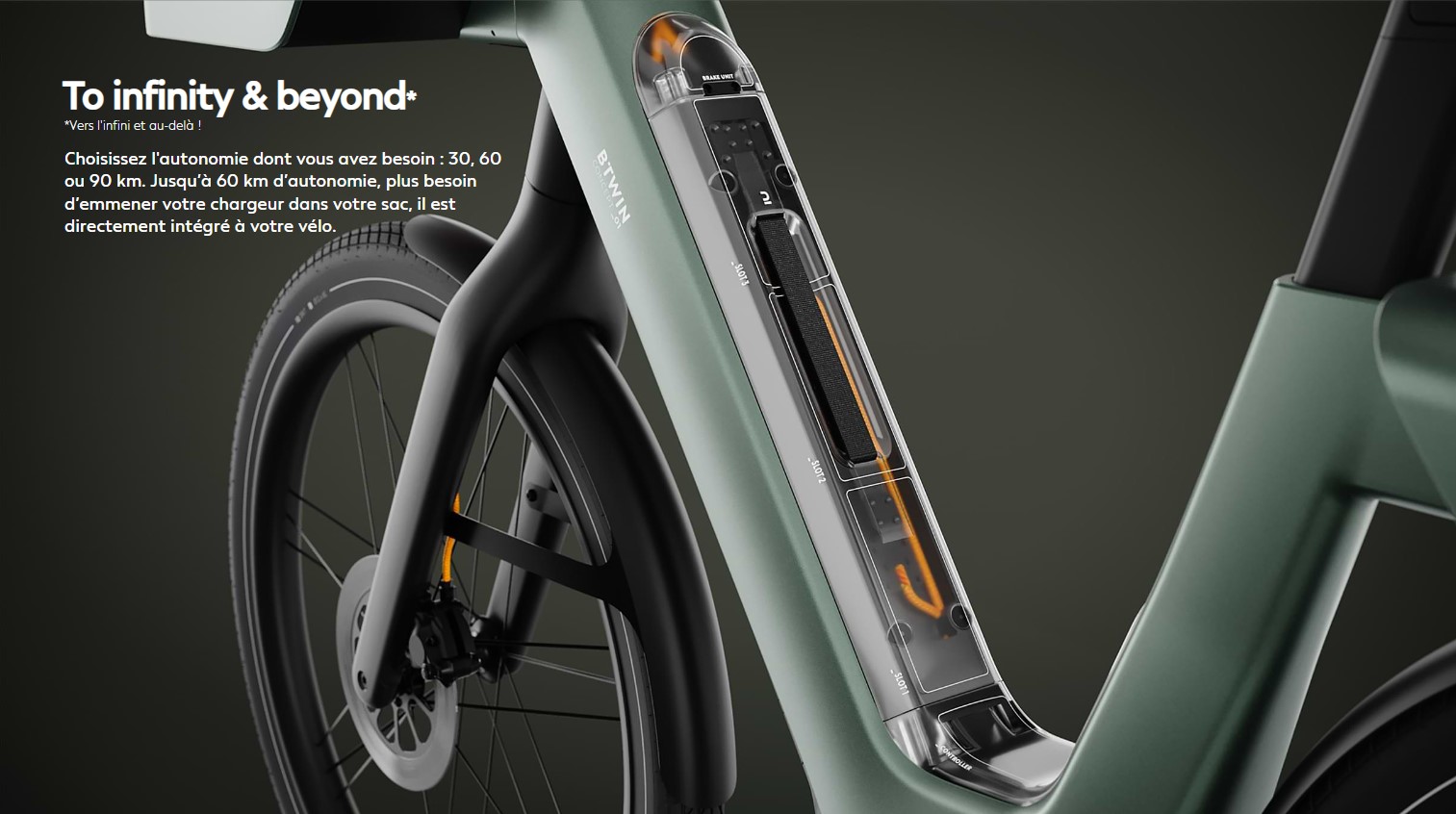
Once at your destination the bike goes up on its kickstand, which locks in place. Presumably it’s too heavy to carry and that’s why there’s no need for a traditional lock that secures it to a lamp post or similar.
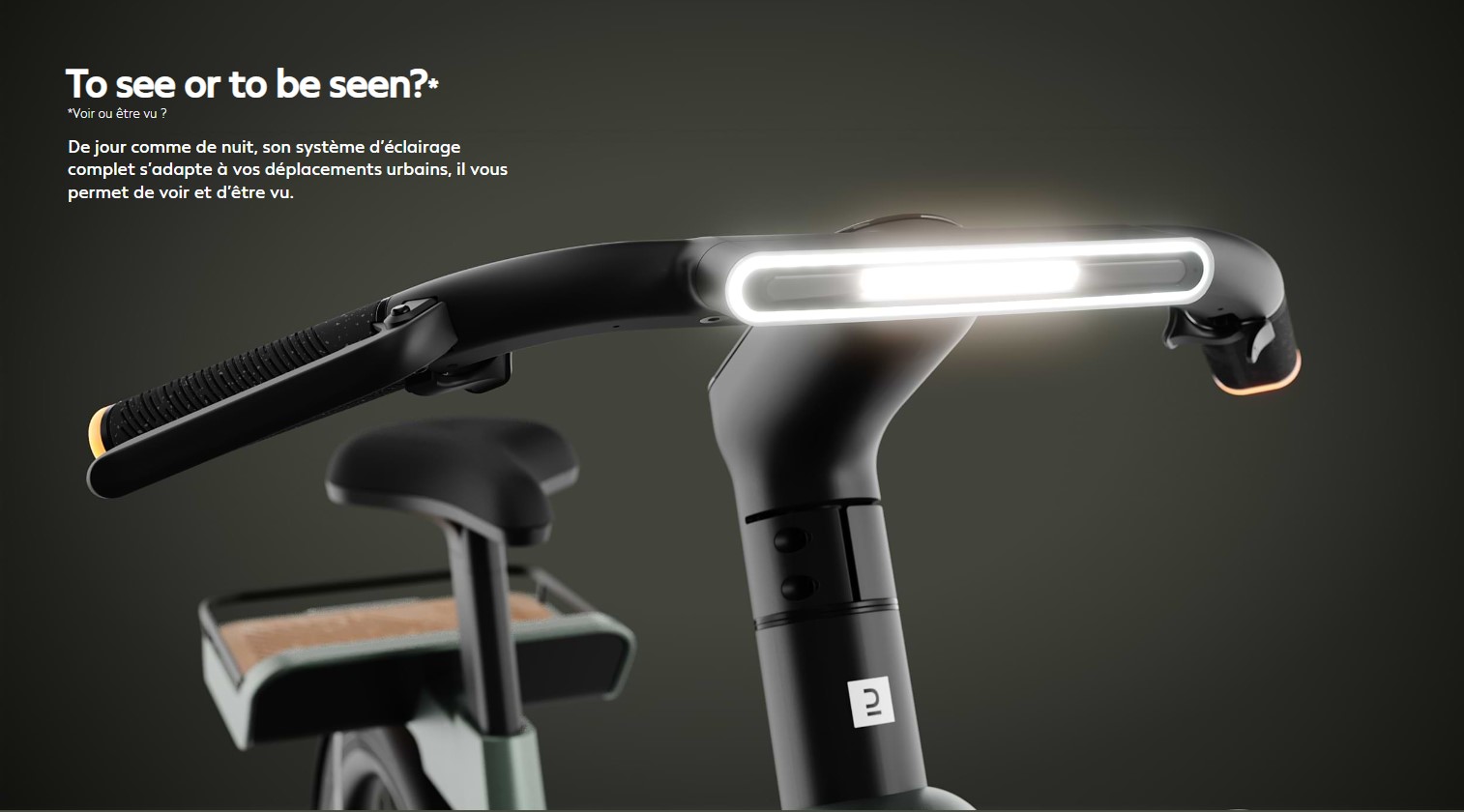
The front and rear carriers are removable and the mounts can accommodate different types of portage: a child seat is shown along with racks, panniers, trays and a top-box or pizza delivery-type container.
Information about the lights, which give the bike a sort of Wall-E look, is fairly scarce too: just that you can see and be seen with them.
Obviously there’s no information about how much the Magic Bike might cost, when it might be available or even whether Decathlon will build a prototype. It could be that the brand is currently, as it says, just submitting its ideas and collecting opinions, and it invites you to join its "co-creation community".
But it certainly seems as though Decathlon is moving beyond the utilitarian range of mountain, hybrid, city and folding e-bikes that it currently sells.
Simon Smythe is a hugely experienced cycling tech writer, who has been writing for Cycling Weekly since 2003. Until recently he was our senior tech writer. In his cycling career Simon has mostly focused on time trialling with a national medal, a few open wins and his club's 30-mile record in his palmares. These days he spends most of his time testing road bikes, or on a tandem doing the school run with his younger son.
